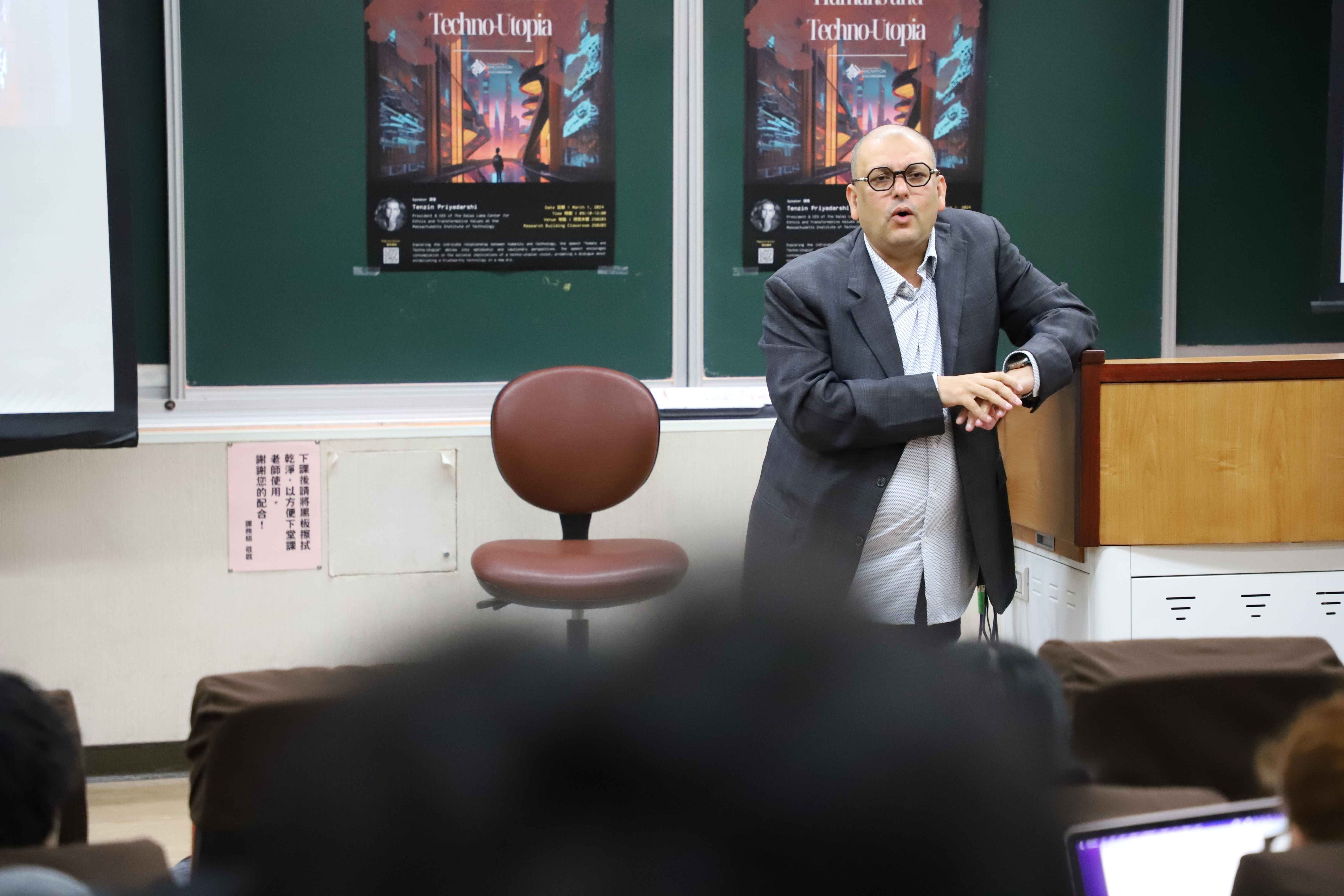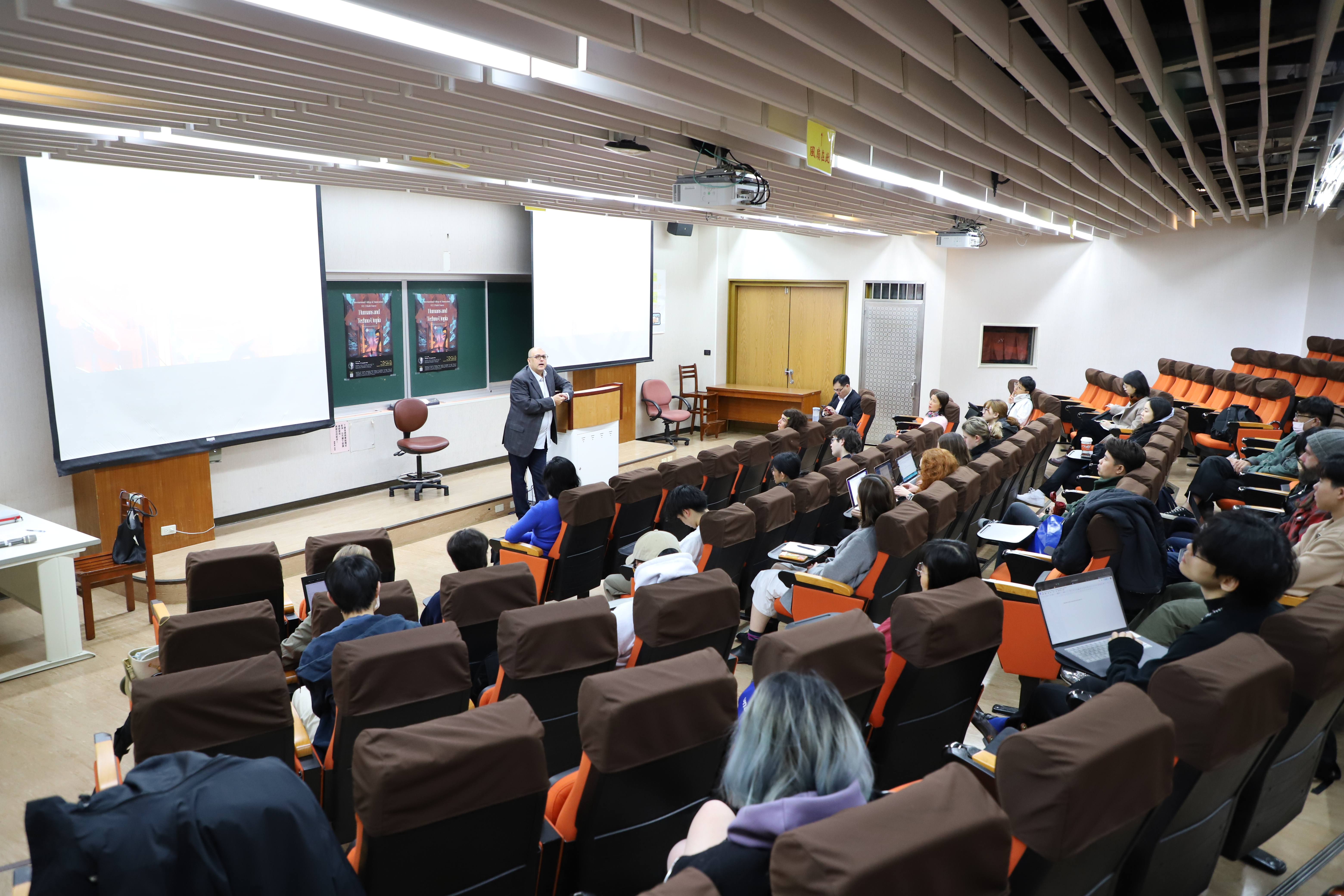On March 1st, 2024, the International College of Innovation at National Chengchi University (NCCU) hosted an engaging flash course featuring a keynote speech by Tenzin Priyadarshi, President & CEO of The Dalai Lama Center for Ethics and Transformative Values at MIT. His presentation, titled “Humans and Techno-Utopia,” captivated the audience with its deep exploration of the relationship between humanity and technology.
Priyadarshi, recognized globally for his expertise in futurism and technology, traced humanity’s quest for a utopian existence through technological advancements. Starting from the discovery of fire to the latest advancements in artificial intelligence, he illustrated how each significant milestone in human history has been a step towards an envisioned utopia.
The speech prompted attendees to consider the societal implications of a techno-utopian vision, emphasizing the necessity of establishing a trustworthy relationship with technology as we step into new frontiers. Priyadarshi balanced his optimistic view of technology with caution, advocating for ethical considerations in technological development.
During the interactive Q&A session, participants from NCCU’s International College of Innovation shared diverse views on what constitutes a utopian society. Discussions ranged from the longing for a simpler life to overcoming societal challenges like fear and envy. Priyadarshi highlighted the impact of technology on social structures, addressing concerns such as the digital divide and the role of social media algorithms in societal polarization.
A significant focus of his speech was the potential of Artificial Intelligence (AI) in reducing educational disparities and fostering a more equitable society. However, he also pointed out the uneven global distribution of AI advancements, using the technology gap between Taiwan and other countries as a prime example.
The event concluded with Priyadarshi emphasizing the importance of continuously reflecting on our vision of utopia and the essence of what it means to be human in a world increasingly shaped by technology. His insightful speech at NCCU’s International College of Innovation not only enlightened the audience but also initiated a critical conversation about the future intersection of humanity and technology. 






